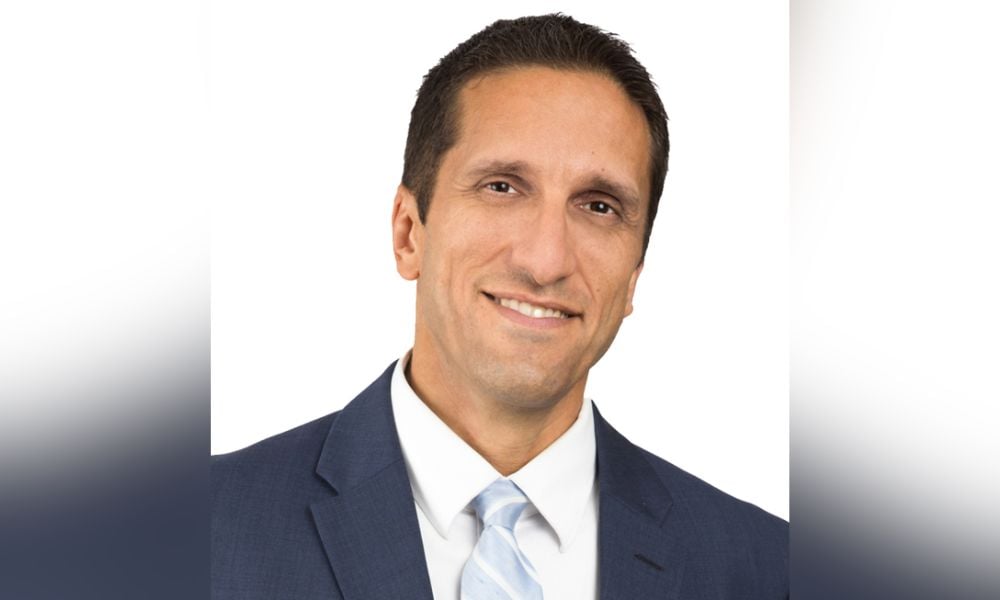‘We’ve got too many red flags out there that will cause some type of labour disruption’

Trade uncertainties around the globe may slow the Canadian economy in 2019, and human resources professionals will need to be prepared, according to experts.
Scuffles between major world powers are leading to instability unseen in the last half-century, said Anthony Ariganello, CEO of CPHR (Chartered Professionals in Human Resources) Canada in Vancouver.
Unknowns around U.S. President Donald Trump’s decisions on trade, Britain’s impending exit from the European Union (EU), Canada’s pipeline struggles and China’s economic slowdown are all part of the picture, he said.
“All of this to me — when you think about the G7 countries — is significant,” said Ariganello. “I’ve never seen all these countries being affected at the same time in one way with these geopolitical issues.”
Canada’s economy isn’t immune to global economic tensions, and a domestic slowdown is being predicted with the trickle-down reaching all the way to HR departments in terms of labour restructuring, he said.
“We’ve got too many red flags out there that will cause some type of labour disruption,” said Ariganello. “The next couple of months will really tell the tale in terms of what’s going on.”
Last year was a good one for Canadian economic growth, but the effects won’t last, according to Pedro Antunes, chief economist at the Conference Board of Canada in Ottawa.
“Growth has kind of peaked in 2018 and the consensus around the forecast for 2019 is there’s some challenges for the global economy that will at least slow its growth,” he said.
“There are risks that we could have a harder hit to the economy, if not in 2019 (then) in 2020. Certainly, there are a lot of risks out there.”
The U.S. economic growth cycle is “really long in the tooth” and due for a slowdown, said Antunes, while U.S. tariff wars could also have a major ripple effect across the globe.
“When we start talking about tariffs that would affect the two biggest consuming nations in the world — the U.S. and China — this starts to cause concern.”
Despite global uncertainties surrounding the Brexit deadline of March 29, Canada’s Finance Minister Bill Morneau said the country will forge ahead with resolve.
“We don’t see this as something that’s directly problematic for the Canadian economy, but it’s obviously something that’s difficult for the global economy,” he told the Canadian Press.
“Our ongoing goal, of course, is to have long-term economic relationships around the world that ensure that people can have good jobs here in Canada.”
Labour shortage linked to lower investment
Rising concerns about the economy and labour shortages are weighing on business owners, while investment intentions vary across the country, according to a report released by the Business Development Bank of Canada (BDC).
Business investment is expected to pick up in British Columbia, Alberta, Manitoba and Newfoundland, as well as Canada’s three largest cities, but lag elsewhere across the country, according to the fall 2018 survey of 4,024 business owners with fewer than 500 employees.
The labour shortage is the top-cited reason for companies holding back on investment across Canada, with more than half of employers saying they will limit investment as a result, according to the report.
“Businesses have more and more difficulties to recruit people because the unemployment rates are at a historic low,” said Pierre Cléroux, chief economist at BDC in Montreal. “What surprised me is this is limiting their growth, so businesses are not able to continue to grow just because they don’t have enough people.”
“The shortage of labour is having an impact today,” he said, with some businesses declining contracts, refusing new clients and outsourcing staff to cope.
Canadian investment has been a disappointment as of late, according to Antunes, and investment, capital and quality labour will ultimately determine national output going forward.
“We had a phenomenal year in 2017, but really it was driven by domestic spending,” he said, citing a hot real estate market, alongside government and household spend.
That helped to drive employment growth, said Antunes, “but we really have tapped out the consumer.”
At the time, it was thought investment would eventually pick up the slack as exports returned to traditional markets, but that hasn’t necessarily been the case, said Antunes.
“We really have hit the point where we don’t have any more capacity… (and) we just don’t see a very strong potential yet in terms of business investment or exports,” he said.
“Firms do suggest that government policies and the lack of skilled labour are kind of the number 1 and 2 pieces that are keeping them from investing in Canada.”
And even if further investment is expected, the current economic situation isn’t ideal, according to Ariganello.
“We’re not seeing it yet, but it’s going to hit the numbers in terms of employment and disruption,” he said. “If I’m a CEO, say, of a large conglomerate, I’m saying, ‘Well, there’s just a lot of uncertainty right now with China, the United States, the U.K., and even Canada. Maybe we need to stop investing and think about our growth strategy — if we have any growth strategies, because we may be spending money and we may not be getting the growth necessarily, because people don’t have the spending power.’”
The outlook could turn quickly if the U.K. settles its grievances with the EU, and the U.S. and China come to terms in their struggle over tariffs, said Ariganello.
Tech as a solution?
Nearly half of employers plan to adopt new technologies this year, mainly in software, training and intellectual property, according to the BDC report.
“Technology is exploding right now,” said Cléroux. “We are talking about digital technology, robots, artificial intelligence… Companies are using this technology to make themselves more efficient to better serve their clients.”
And as technology becomes cheaper and easier to use, employers will only accelerate such investments, he said.
The adoption of technological solutions should no longer be viewed as a threat but rather an “immense opportunity,” said Antunes.
“The timing would be absolutely perfect,” he said. “At a time where labour markets are very, very tight, we would like to see more investment in capital and machinery and equipment, in retooling, in intellectual property to help alleviate some of this labour crunch.”
Additionally, technological solutions could help increase
labour productivity, and potentially aid economic growth with fewer workers, said Antunes.
The wave of baby boomers entering retirement will only continue to grow over the next decade, increasing the pressure on companies looking to recruit, he said.
“In general, the biggest challenge for most employers will be finding workers.”
Advice for HR
Because of these circumstances, HR professionals have a major role to play, said Cléroux.
“The role of the human resources department is going to be much more important in the next decade,” he said. “This phenomenon that we’re seeing is going to last for a while, because of the aging population.”
New recruitment strategies will be needed, and businesses should consider making compensation packages more attractive through benefit offerings and work flexibility, said Cléroux.
“There’s a number of strategies that you can adopt, and all of this is going to be the responsibility of human resources,” he said. “All this is important for retaining employees and attracting employees.”
Senior HR leaders and CHROs should work to be leaders on this file, said Ariganello.
“We are always saying that HR leaders need to be more strategic, understanding that these issues are there and raising them for discussion with their CEO and CFO and COO… in terms of planning and also advising employees that (the) organization is aware of what the economic landscape is around the world and these are some of the repercussions… educating people so there’s no surprise, and being in front of it, as opposed to having to react when something happens.”
Planning for the future shouldn’t fall squarely on the shoulders of the CEO, he said.
“That’s where you then say you’re a team player and you belong at the strategy table, because this ultimately affects human capital — your largest resource in many cases for so many organizations,” said Ariganello.
“Taking the lead on that and understanding the pulse is really what shapes great leaders and contributes to the profession.”




